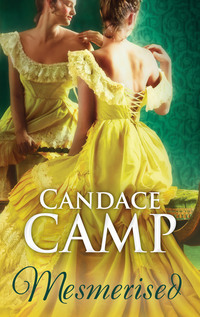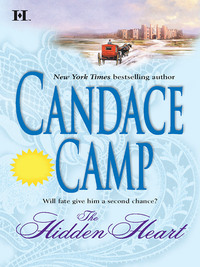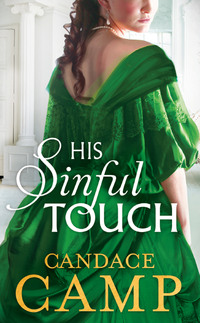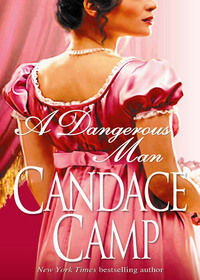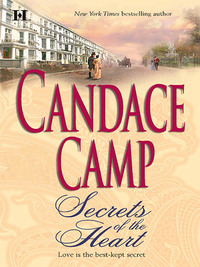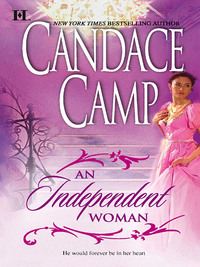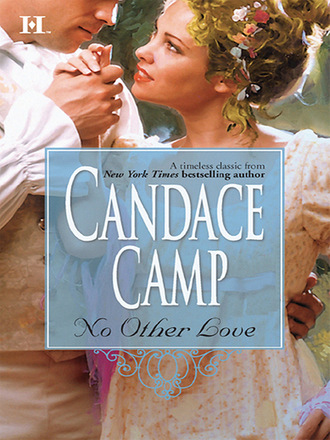
Полная версия
No Other Love
“What about the groom?” Richard swung around, pinning her with his piercing gaze. “I specifically put him up there beside the coachman with a gun to ward off such an attack. But he not only didn’t fire a shot, he gave them his weapon!”
“I don’t know what else you could expect. There were at least six men surrounding the coach. If he had fired it, both he and the coachman would have been dead in an instant. And then where would I have been? It would scarcely be doing their duty to leave me stranded and unprotected in the middle of the road, would it?”
Richard snorted. “Lot of protection they were.”
“Well, I am here and unharmed, with nothing worse lost than a few jewels and some coins.”
“I must say,” her brother-in-law said resentfully, “you seem rather blasé about the whole affair.”
“I am happy to be alive. For a few moments there, I was certain that I would be killed.”
“Yes. Thank heavens you got here safe and well,” Deborah put in, reaching out a hand to her sister.
Nicola moved nearer to Deborah and closed her own hand around Deborah’s.
The Earl regarded the two women sourly. “Well, I am glad that you can regard it so lightly. But it is something I cannot ignore. It is a blatant insult to me.”
“Oh, really, Richard! I am the one who was attacked!”
“You were traveling under my protection. It is a slap in my face. That blackguard is as good as saying that my protection is worthless. He clearly did it to humiliate me.” He smiled grimly. “Well, this time the chap will find out that he has gone too far. I won’t rest until I have his head on a pike. Thank heavens I had already sent for a Bow Street Runner. As soon as he gets here, I’ll set him on this. Then that scoundrel will learn that he has been tweaking the wrong man.”
It was typical, Nicola thought, that Richard would be much more concerned over the presumed insult to himself than he would be over his passenger’s safety. She glanced at her sister, wondering if Deborah was still so blinded by love for the man that she did not see how cold and self-centered he was.
But, looking at Deborah’s pinched, pale face, Nicola quickly dropped all thoughts of Richard or of the attack. “Enough of this talk,” she said crisply, going to her sister. “Deborah is obviously tired and needs to go to bed.”
Her sister cast a grateful smile in her direction, though she demurred, “No, I am all right, really.”
“Nonsense. It is quite clear that you are dead on your feet. Come along, I will take you up. Richard,” Nicola said, casting him a perfunctory nod, “if you will excuse us…?”
Richard bowed back, barely sparing a glance for his wife. “Of course. I need to go out to question the coachman. Good night, Deborah. Nicola.” He hesitated, then added with a wry twist of his mouth, “We are pleased to have you visit. I apologize for the inconvenience.”
He left the room, and Nicola took her sister’s arm and helped her up from her chair. They began to walk to the stairs. Deborah cast an anxious look toward the front door, through which Richard had disappeared.
“I do hope Richard will not be too harsh on the coachman. I—he would not be unkind normally, of course. It is just that this highwayman has him so upset.”
“I could see that.”
“It is because the man plagues Richard, you see. He—I know it sounds odd, but he seems to particularly delight in stealing from Richard. Tenants’ payments, the shipments to and from the mines—I cannot tell you how many times those wagons have been stopped. Even in broad daylight. It is as if he were thumbing his nose at Richard.”
“It makes sense. Richard is the largest landowner around here. It would stand to reason that much of the money the man takes would be from him.”
“Oh, he stops other things—other carriages, the mail coach sometimes. But it is Richard who has been hit the hardest. It has cut deeply into his profits from the tin mines. Richard has been nearly beside himself. I think what bothers him the most is that ‘The Gentleman,’ as they call him, has evaded capture so easily. He comes out of nowhere and then melts back into the night. Richard has sent men out looking for his hiding place, but they have found nothing. He has put extra guards on the wagons and his carriage, but it doesn’t stop him, just as it didn’t tonight. And no one will come forward with any information about him. Even the miners and farmers who work for Exmoor claim to have no knowledge of the man. Do you think that is possible?”
“I don’t know. It does seem somewhat unlikely that no one would know anything about him.”
“Usually the people in the village seem to know about everything. Richard says they are deceiving him. Hiding the man’s whereabouts from him. For some odd reason, the highwayman seems to almost be some sort of hero to the local people.”
Having seen the fit of rage that Richard had pitched about the theft and the way he had blamed first the coachman, then the guard, Nicola could well believe that Richard’s employees and tenants told him little. She had never seen Richard be anything but arrogant, even with his peers. With those he considered his inferiors, he was doubtless far worse. She suspected that the people around here were probably secretly pleased that the highwayman was harassing the Earl of Exmoor.
“What do you know about this highwayman?” Nicola asked, trying to keep her voice casual. “He seems an odd sort to be a thief. He spoke as well as you or I. And so did one of the other men.”
Deborah nodded. “That is why they call him The Gentleman.” They had reached the top of the stairs, and Deborah paused for a moment to catch her breath. “That and his manners. He is reputed to be invariably polite, especially to ladies, and it is said that he has not harmed anyone that he has stopped. He stopped the vicar once at night when he was going to the side of a dying man, and he didn’t take a farthing from him, just apologized for stopping him when he saw who he was—and sent him on his way.”
“Indeed.” Nicola did not tell her that the man’s behavior toward her tonight could scarcely be characterized as polite. Not, of course, that he had actually harmed her, but that kiss…well, it had been an insult, an effrontery.
“No one knows where he came from,” Deborah added. “He started only a few months ago.”
“It seems an odd place to choose. Thieves usually operate closer to London or on a main thoroughfare, not out in the country. How do you suppose he came to this pass? Do you think he really was gently born? A son who disgraced his family and was disowned?”
“Or a wastrel who squandered his fortune,” Deborah offered. “That is the theory that the vicar’s wife proposes. Or perhaps he was merely someone who was well-educated but poor, a tutor or a fencing master, or someone of that sort.”
“A tutor?” Nicola couldn’t suppress a giggle. “A history scholar who takes to the highways?”
Deborah grinned, too. “That does seem a little absurd. Richard says that he is merely a ‘damned actor’ who has learned how to ape his betters.” She sighed. “And perhaps he is. No doubt we make him seem a more romantic figure than he is.”
“No doubt.” Nicola remembered the touch of his hand on hers, the searing pressure of his lips, and a shiver ran through her.
“I am sorry.” Deborah, holding her arm, felt the faint tremor, and she turned toward her, frowning in concern. “I should not be speaking so lightly of him when you have just had such a dreadful experience. It must have been awful.”
Nicola smiled. “I am all right. No doubt you remember that I am not a very sensitive woman. I rarely have the vapors.”
“But meeting a ruthless criminal would cause even you to feel some qualms, no doubt. Let us not speak of it any longer.”
Deborah had come to a stop outside a door, and now she turned the knob. “This is your room. Mine is right next door.” She motioned to the next door down the hall. “I hope you like it,” she continued. “If there is anything that you need, just let me know.”
The room beyond the door was spacious and well furnished, with two sets of windows upon the back wall, the heavy drapes now drawn to close out the night. A fire had been banked in the fireplace, and an oil lamp burned low on the bedside table. A maid was running a warming pan between the sheets as they came in, and she curtsied and left the room.
“It’s lovely,” Nicola said, looking around the room.
Deborah smiled. “I am so glad you like it. It has quite a lovely view during the day—the garden below and the moor rising in the distance.”
“I am sure it is beautiful.”
“Come see my room,” Deborah urged, taking her hand and leading her out of the bedroom and down the hall.
Deborah’s bedroom turned out to be quite similar to the room she had allotted to Nicola—spacious and attractive, it was a very feminine room, full of ruffles and frills, with no sign of masculine occupancy anywhere, not even a pair of men’s boots against the wall or a shaving stand. It did not surprise Nicola that the Earl and his Countess had separate sleeping quarters; it was quite common among the aristocracy. However, it did strike Nicola as a trifle odd that there was no sign of even Richard’s occasional presence.
Nicola glanced at her sister, who was happily talking about her plans to put the baby’s crib beside her bed and a cot for the nurse in the dressing room once the baby was born. She wondered if Deborah still loved Richard as she had when she married him, or if she had come over the years to see him for what he really was.
Deborah sighed, still looking at the spot where the baby’s crib would stand, and Nicola could see the fear and sorrow mingling in her face. No doubt she was remembering the other babies whom she had hoped to place there.
“I am sure it will be a wonderful arrangement,” Nicola said quickly, going to her sister and putting her arm around Deborah’s shoulders. “And the baby will love it.”
“Really?”
Nicola knew that her sister was actually asking for reassurance that this baby would not meet the fate that its siblings had. So Nicola smiled at Deborah, putting every ounce of confidence she possessed into her expression. “Of course. You’ll see. Now, you must not worry. That will not help the baby at all.”
“I know. That is what everyone says. But it is so hard when—”
“Naturally. But rest assured that I am here, and I will help you. If there are problems with running the household or anything else, I will take care of them. You know what a bossy soul I am.”
Her sister smiled and relaxed a little against Nicola, and Nicola knew that the ingrained habit of a younger sister to depend on an older one had worked its magic.
“It is so wonderful to have you here,” Deborah said, and there was such a sad, yearning look on her face that Nicola felt guilty that she had avoided visiting her for so long. “I—I know you and I disagreed on—a number of things. But we can put that behind us now, can’t we?”
“Of course we can.” Nicola knew that it had never been her differences with Deborah that had kept her out of this house. It was Richard—and the things that he had done ten years ago. “Let us not worry about that. All that need concern us is your health.”
“I am tired,” Deborah admitted. “I seem to have so little energy these days. And the morning sickness is much worse this time.” She brightened, smiling at her sister. “But the doctor says that is a good sign, that it means this is a healthy baby, not like the others.”
“Doubtless he is right,” Nicola replied, even though she personally thought doctors were often woefully ignorant. It was one of her many opinions that made others in London Society term her “eccentric”—or worse. “And I am sure he told you that you needed to get plenty of rest, as well, didn’t he?”
Deborah agreed, smiling. “Yes.”
“Then let me ring for your maid to help you undress so that you can go to bed.”
“But I want to hear all about Cousin Bucky’s engagement!” Deborah protested.
“We shall have ample time for that tomorrow. I promise I will tell you all about it—and Lord Lambeth’s, too.”
“Indeed? He is marrying, as well?” Deborah’s eyes widened with interest. “But who? I thought he was a confirmed bachelor.”
“I suppose it only takes the right woman,” Nicola replied. “But it is far too long a tale for now. I will tell you all about it tomorrow.”
With a rather tired smile, Deborah agreed. Nicola gave her a peck on the cheek and left the room, going down the hall to the room Deborah had prepared for her. She closed the door behind her with a sigh and looked around the pleasant room. The glow of the lamp was welcoming, but it could not dispel the chill in her heart.
She hated it here. She wished she were miles away, back in London, in the life she had built for herself there. In London she was content. She had her charity work with the poverty-stricken women of the East End, the kitchen that dispensed food and clothes for those bitterly in need. There was the social round that she kept up with when and if it pleased her, the little flirtations that no one took seriously, the intellectual discussions at her small, intimate dinners. Even the arguments over her causes with various members of her social set were a bracing part of her life. She was useful and busy, and there were the pleasures of the opera and theater to be enjoyed.
But here…here she felt unsettled. She hated being in this house with Richard. And there had been that dreadful confrontation with the highwayman…that kiss….
Nicola shook her head as if to clear it. It was so stupid to be thinking about that kiss; she would not do it.
She walked to the window and parted the heavy drapes, peering out into the dark night. The trees and shrubbery of the garden were dark shapes in the moonless night. Nicola closed her eyes and leaned her head against the cool window as a sharp yearning pierced her, so fierce she almost cried out. Oh, Gil!
It had happened like this before, a swift, unexpected pain in her chest, as if the wound were brand-new, not years old, and when it did, she would ache for Gil with a sorrow that threatened to smother her. But it had not happened for a long time now; it had, after all, been ten years, and usually when she thought of Gil it was in a sweet, sad way, a remembrance of his smile or his laugh, or the way he walked, that made her smile as much as it made her sigh with regret. But this—this yearning that swept over her—was bitter and painful, cutting into her almost as it had ten years ago.
The thought of him had kept popping into her mind all evening. As her carriage had pulled into the yard, she had remembered suddenly the first time she had seen him. It had been here at Tidings, as she and the rest of a large party had returned from a hunt. He had come up to her horse, reaching up to help her down, and she had looked down at him, taking in with a jolt his handsome face and laughing black eyes, the thick shock of dark hair that tumbled across his forehead. Her heart had been lost to him at that moment, though she had fought it for a while.
Thoughts of him had kept intruding all through her talk with Richard and later with Deborah. Now that she was alone, she could not hold them back. Memories came flooding in. She supposed it was because she was here at Tidings, where she had first met him, or perhaps it was being around Richard, whom she had done her best to avoid for ten years. Whatever it was, her heart ached with a pain and hunger that she knew would never die, only recede now and then until the next time they welled up.
With a half sob, she left the window and threw herself down on the bed. She turned on her side, gazing into the glowing red coals of the fireplace, and, curling up like a child, she gave herself up to thoughts of him….
CHAPTER TWO
1805
NICOLA WAS SIXTEEN WHEN SHE MOVED to Dartmoor with her mother and younger sister, Deborah. Her father had died, and while he had left them well-provided for, the estate upon which they had lived was entailed and passed automatically, along with the title, to a second cousin. The cousin had politely offered to let them continue to live at home with him, his wife and their brood. He had little feeling for them, but it would have looked bad for him to do otherwise. However, Lady Falcourt, who had as little liking for him as he did for her, and even less liking for his efficient, energetic wife and noisy pack of children, declined his offer with equal politeness and removed herself and her children to the house of her sister, Lady Buckminster.
Lord Buckminster, her nephew, familiarly known as Bucky, was a friendly, easygoing sort who welcomed them to stay as long as they wished. Nicola, frankly, found herself happier at Buckminster than she had ever been at home. While she mourned her father, he had been a distant sort of parent who spent most of his time in London. Lady Falcourt was given to various illnesses, and so, from an early age, much of the decision-making for the household had fallen upon Nicola.
But here at Buckminster, Lady Buckminster’s housekeeper was a supremely competent woman who ran the household with little more than a vague nod of approval from Lady Buckminster. Lady Buckminster’s abiding passion was horses, and as long as she was not inconvenienced or distracted from her riding and breeding and hunts, she paid little attention to the house or to the behavior of anyone in it. Freed from a governess for the first time, with the weight of household management off her shoulders, and under Lady Buckminster’s less-than-watchful eye, Nicola found herself more or less on her own, free to do as she wished.
Therefore, she spent most of her time riding about the countryside, meeting the people who lived there. From childhood, Nicola had always felt at ease among the servants and tenants of her father’s estate. Her mother had usually been feeling too “invalidish” to spend much time with an active youngster, and Nicola had received the bulk of her love from their nurse and had returned it with all the enthusiasm of her nature. Her “family” had grown over the years to include most of the other servants, from the lowliest groom or upstairs maid all the way to the imposing figure of Cook, who ruled the kitchen with an iron hand.
It was Cook who had inspired her interest in herbs, explaining to her the properties of each herb or spice she put into the food, while Nicola sat on a high stool beside her, watching with great interest. It was the healing properties of the herbs that most appealed to Nicola, and before long Cook was teaching her to grow herbs in a garden, as well as identify and pick them in the wild. She had learned how to dry them, mix them, how to make tinctures and salves and folk remedies of all sorts. Nicola had broadened her knowledge as she grew older by reading and experimenting, and by the time she was fourteen, she was called upon to cure this illness or that almost as much as Cook herself.
It had cost her a good many tears to leave behind the servants when they moved to Buckminster. However, once there, she quickly began making friends wherever she went.
The only problem in her new existence came in the form of the Earl of Exmoor. As the only other member of the aristocracy in the area, he was invariably present on any social occasion, and given the looser restrictions of country life, Nicola, though only seventeen, was usually often included in those events, as well. She was undeniably the belle of the area, sought after by the vicar’s pimply son, down from Oxford, as well as the Squire’s son and his frequently visiting friends. She didn’t mind such boys and their usually awkward attempts at flirtations. The Earl was another matter altogether. Mature and sophisticated, he courted her with all the smoothness of an accomplished rake. Without appearing in any way overbold in the eyes of her mother or Lady Buckminster or any of the older ladies present, he managed to find numerous opportunities to touch her in some way, and he talked to her in a low, silky way, with unmistakable gazes of passion, that both irritated and alarmed Nicola.
She had no interest in the man. However, to her mother, as to most of the world, he seemed a marvelous catch. “Goodness, Nicola,” she responded when Nicola protested her inviting him on some outing, “I would think you would be flattered by his attentions. He is quite a catch, you know. Splendid family, the Montfords—wealth, a title. Why, you’re even friends with his cousin—what is that mousy little girl’s name?”
“Penelope,” Nicola replied through gritted teeth. “And she’s not mousy, merely quiet. Yes, I like Penelope, and her grandmother, too, but that has no bearing on how I feel about Exmoor. I don’t like him. I don’t like the way he looks at me or talks to me.”
“Oh, my dear,” her mother replied with a chuckle. “You’re simply too used to callow youths.”
“Well, I prefer callow youths to an old man!” Nicola flared.
“Really, Nicola, the way you talk…The Earl isn’t old. He’s in the prime of his life.”
“He must be close to forty! And I am only seventeen, in case you have forgotten.”
“Please, dear, there is no need for you to be rude,” Lady Falcourt said with a martyred sigh. “He is in his late thirties, but that’s scarcely too old to marry. Many men are quite a bit older than their wives. Your father, for instance, was sixteen years older than I.”
Nicola bit her lip to hold back the sharp retort that sprang to them. It had been clear to everyone that her father had married her mother for her youthful beauty and then had found her a dead bore once the infatuation had worn off. That was why he had spent most of his time in London.
“It doesn’t matter” was all she said. “I have no wish to marry anyone. I don’t plan to marry for a good many years yet, certainly not until I find someone I love. Grandmama left me a pleasant portion so that I would not have to marry at all if I didn’t want to.”
Lady Falcourt gasped and sank back weakly against her chair. “I don’t know where you get these radical notions.”
“Yes, you do. From Grandmama.” Her grandmother had been an outspoken and independent woman who had always looked somewhat askance at the fluttery, vapid woman who was her daughter. Her grandmother had been forced by family pressure into a loveless marriage, and she had made certain that none of her own three daughters had been compelled to do the same. She had often spoken to Nicola about following her own heart, and when she died, she left both her and Deborah sizable enough inheritances that they would be able to live independently if they chose to.
“Yes. And you get them from your aunt Drusilla, as well,” Lady Falcourt agreed darkly. Her sister Drusilla had never married, but had lived with their mother in London, where she maintained a social salon of great note and wit. Lady Falcourt understood her even less than the horse-mad Adelaide, Lady Buckminster. “Drusilla is no one to pattern your life after. A spinster…no children to brighten her days, no husband to look after or home to keep.”
Nicola sighed. This was a favorite theme of her mother’s, even though Nicola had rarely seen her mother lift a finger to organize the household or raise a child. “I have no intention of not marrying, Mama. However, it will be when and to whom I want. And that certainly will not be now or to Lord Exmoor.”
Still, there was little way to avoid the man unless she wanted to become a social recluse. He was bound to be at any local party or dinner; having an earl in one’s house was considered a feather in any matron’s cap, even one as supposedly unworldly as the vicar’s wife. Worse, her mother insisted on accepting any invitation he sent their way.
So it was that Nicola attended the hunt at Tidings, the Exmoor estate, and trotted into the yard, flushed from the activity, her hair coming loose in little tendrils around her face. As the Exmoor grooms rushed out to take the reins of the horses, Nicola looked down and found herself staring into one of the handsomest faces she had ever seen.
He was larger than most of the grooms, taller and leanly muscled. Dark, mischievous eyes gazed out from his tanned face, framed by a mop of thick black hair. A smile widened his mobile mouth as he gazed up at Nicola. Nicola stared back, feeling rather the way she had the time she fell out of the oak tree when she was little, as if the world had somehow stopped and she was floating free from it, as if her lungs no longer worked, but her heart was skittering double time.


